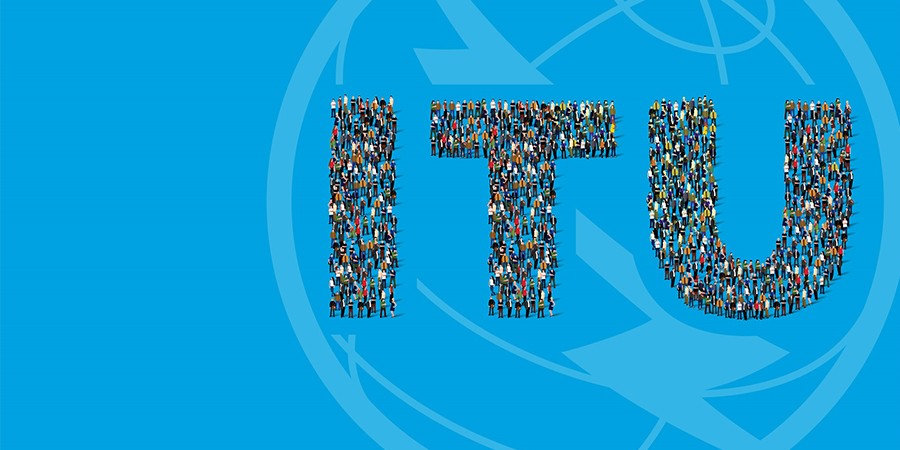International Telecommunication Union (ITU), the UN's telecoms agency, plays a key role in setting the global standards followed by mobile phones, television and the internet.
Founded in 1865, the ITU was initially created to manage international telegraph networks and was later expanded to allocate global radio spectrum and satellite orbits as well as develop technical standards that ensure network interconnection.
As the oldest active agency – joining the United Nations fold in 1949 – ITU brings together 193 member states as well as close to 900 companies, universities and international and regional organizations.
The ITU's work is divided into three branches: radiocommunications, standardization and development, with a regionally-balanced 48-member council serving as its governing body.
ITU was responsible for establishing "SOS" as the Morse code international maritime distress call in 1906, and following the sinking of the Titanic in 1912, agreed to a common wavelength for ships' radio distress signals.
In the year 2000, technical specifications for 3G systems allowed full interoperability of mobile systems for the first time. Succeedingly, in early 2012, ITU initiated the development of "IMT for 2020 and Beyond," setting the stage for 5G research activities, and in 2015, it established the vision and requirements for the globalization of 5G.
ITU's key recommendation for IMT-2020 is the underlying global coordination framework for 5G services. In November 2020, ITU approved three framework-compliant technologies, namely 3GPP 5G-SRIT, 3GPP 5G-RIT and 5Gi, submitted by the Telecommunications Standards Development Society India (TSDSI). Early in 2022, the fourth technology, DECT 5G-SRIT, was approved to support a range of use cases like wireless telephony, audio streaming and industrial Internet of Things (IIoT) applications.
Also this year, ITU has announced its Partner2Connect (P2C) pledging platform and an action framework to advance universal connectivity and digital transformation.
P2C will help mobilize resources to transform societies, promote sustainable digital technology uptake and ensure meaningful connectivity for everyone.
ITU Focus Groups are also widely used to address industry needs as they emerge, with the latest additions including one focused on the federation of testbeds — the physical and virtual laboratories and testing spaces for new and emerging technologies — and another examining emerging cyber-physical systems as groundwork for standardization of digital agriculture worldwide.
Support From the Middle East
Saudi Arabia, recognized as the fifth-generation (G5) regulator by the ITU, supports the creation of the “Global AI Readiness Frameworks” for key socio-economic domains that could help countries adopt best practices in harnessing AI’s full potential.
Developed by the ITU with funding support from the Saudi Authority for Data and Artificial Intelligence (SDAIA), the frameworks aim to help countries build their own AI economies by understanding where and how AI is being used most effectively.
The UAE’s Telecommunications and Digital Government Regulatory Authority (TDRA) and ITU previously signed an agreement to establish an International Center of Digital Innovation, known as I-CoDI, to help foster digital innovation and drive digital transformation.
Launched in 2020, I-CoDI helps ITU members, sector members and other key stakeholders integrate innovation into their national development agendas and activities.
ITU PP-22
ITU is holding its quadrennial main conference until October 14 in Bucharest. During this gathering, elections will take place for a new set of rosters. Current ITU Secretary-General Houlin Zhao will reach the end of his second four-year term, and two candidates are vying for the position — Russia's former Deputy Telecoms Minister, Rashid Ismailov, and ITU's American Development Chief, Doreen Bogdan-Martin.
Additionally, Dr. Bilel Jamoussi is also running for the position of Director of the Telecommunication Standardization Bureau. His candidacy is endorsed by the African Union as well as by the Arab League and the Organization of Islamic Cooperation.
Dr. Jamoussi has 12 years of experience in this bureau as Chief of the Study Groups Department and 15 years in the private sector as Director of Standards for Nortel in Canada and the USA.
Exclusive: ITU is the unique spot for international dialog to take place, says Bilel Jamoussi
Trace Media International, the mother company of Telecom Review Group, a leading global media platform for the ICT industry, is a proud ITU-T associate. Since 2017, Telecom Review has been hosting the ITU CxO meeting, where industry leaders explore the new industry dynamics and trends within the ICT sector.
Coverage: ITU-T CxO meeting explores 5G, AI, among other ICT trends
